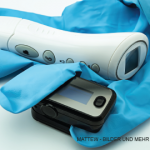By contrast, what have come to be known as the autoinflammatory diseases entail a seemingly unprovoked inflammatory response with no autoantibodies from the innate immune system. This is the primitive arm of the immune system that reacts immediately to patterns (such as LPS, or monosodium urate crystals). Acute gouty arthritis can be viewed as an autoinflammatory disorder, in which recognition of urate by toll-like receptors leads to activation of the inflammasome, resulting in an explosive production of IL-1, and intense inflammation with the classic findings of calor, dolor, rubor and tumor, the heat, redness and swelling, which we see with acute gouty arthritis.
A number of monogenic autoinflammatory diseases have been characterized mostly in children. Is AOSD an autoinflammatory disease? The genetic basis and molecular pathology have not been characterized to the same degree as TNF‑receptor-associated periodic syndrome (TRAPS) or familial Mediterranean fever (FMF). Yet for the purpose of this discussion, I am going to include AOSD in this group.
FMF
Familial Mediterranean fever is the monogenic autoinflammatory disease that adult rheumatologists are most likely to see. First described in 1908, it was named FMF in 1958. The MEFV (Mediterranean fever) gene, which was cloned in 1997, has an autosomal recessive mutation of pyrin.
Recurrent episodes of fever and serosal inflammation occur before the age of 20 years in 90% of patients, and most attacks begin in early childhood. However, in rare cases the first attack can occur after the age of 50. The febrile episodes have an abrupt onset, typically last one to three days and can resolve spontaneously. Only rarely can a precipitating event be identified: exercise, cold, emotional stress, fatigue, surgery or menses. Patients are asymptomatic between attacks, and the interval between attacks can be highly variable: a week to years.
In addition to fever, numerous other problems can occur. Abdominal pain occurs in 95% of patients. It tends to be localized initially, then more generalized, with features of guarding, rebound, rigidity and ileus. It may mimic a surgical abdomen, such as appendicitis. The mechanism is infiltration of neutrophils in the peritoneal cavity causing serositis.
Arthralgia and arthritis occur in about three-fourths of patients. Most commonly, this is monoarticular or polyarticular in large joints, with a migratory pattern being rare. This may be precipitated by trauma and prolonged walking. Sterile synovial fluid is found when joints are aspirated. Although this gradually resolves in 24–48 hours, a chronic/destructive arthritis may develop (rarely).


